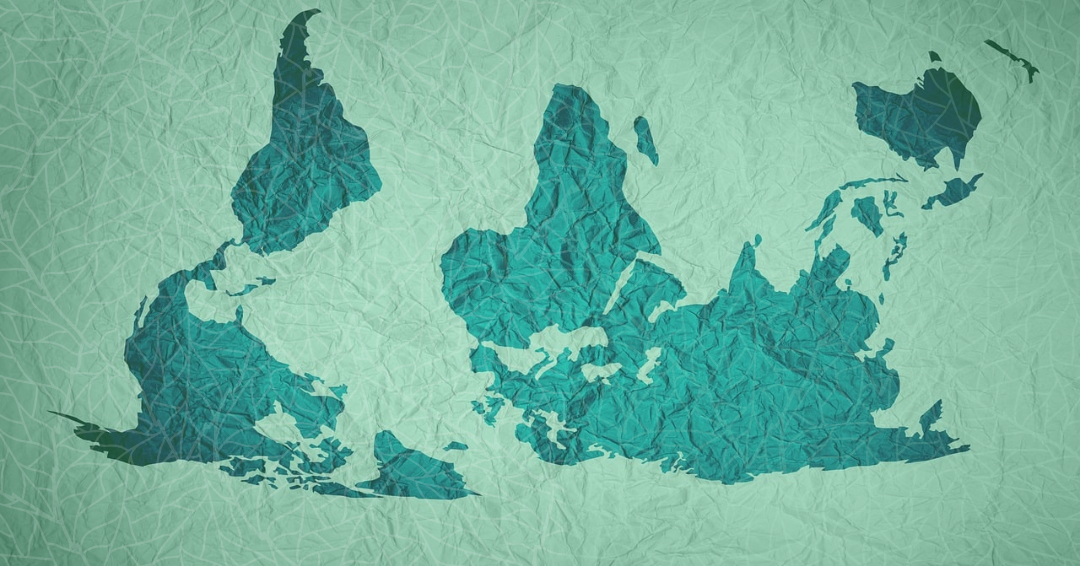London is a city of contrasts and tensions. It is a beloved home to people of diverse cultures, nationalities and backgrounds, where something interesting is always happening, and never too far away.
Yet, it is also an historical centre of global political and economic power. It cannot be ignored: the city formed the heart of a vast and brutal empire which inflicted violence on peoples and ecology across the world, and is a continuing control centre of international financial flows which perpetuate many of the same extractive and exploitative relationships. On top of this (neo)colonial positionality, sickening levels of inequality exist between London’s own residents.
In terms of prime municipal targets for a redistributive degrowth agenda oriented towards just and sustainable futures at local and global scales, London surely has to be near the top of the list. And yet, until recently, there was no collective dedicated to explicitly making the case for a degrowth transformation in London and how this could transform the city for the benefit of the majority.
An acknowledgement of this gap amongst the plethora of grassroots movements and activism in London was key in sparking the creation of a new political collective, Degrowth London.
We first gathered together on an early October evening in 2022, on the back of another summer of record-breaking temperatures still yet to subside to something resembling ‘normal’. We had no initial agenda, except to meet up with like-minded people in a city which sometimes makes this difficult.
Existing connections amongst the group were loose, having snowballed out from an initial few people, to friends of friends, and acquaintances from recent events. The one common thing tying everyone together was an interest – long-held for some, and just beginning for others – in the concept of degrowth.
Once we all got talking at that first meet-up, it quickly became clear that there was an appetite throughout the group to make it something more than solely social. Even then, however, as we met for the second time to discuss establishing a political collective, it was far from inevitable that the group would organise explicitly in the name of degrowth, although this perspective was always going to be at the core of our approach.
People made arguments on both sides, playing out long-running debates around the resonance of ‘degrowth’ as a term, that many people reading this article will likely be all too familiar with. Ultimately, the fact that it was degrowth that had already brought so many of us together, and the absence of any existing group in London centering the concept, tipped the balance in favour of the not-so-subtle name, Degrowth London.
Alongside the darker elements of London’s development, it is crucial to emphasise that the city has a vibrant ongoing history of diverse political movements for social and environmental justice, which address a whole raft of the transformations advocated within the degrowth discourse. Examples include struggles around fossil fuel companies and their financiers, racial justice, housing, anti-fascism, and ecologically destructive developments.
We cannot forget then, that for every executive, financier and oligarch in London chasing power and obscene wealth, there are multiple times more people seeking to build inclusive, joyful, and sustainable communities that can respond to the intersecting social and ecological crises currently unfolding.
These traditions of grassroots organising in London must be celebrated and strengthened. The creation of Degrowth London results from a recognition that the degrowth framing can make a vital contribution to this patchwork of community power calling for just and sustainable futures in London and beyond.
With the decision made that Degrowth London would be created, our next step was to start conversations with other groups – including those organising explicitly around degrowth, and otherwise – in order to learn from their experiences of building a political collective.
From these discussions, there was one particular message that came through louder than any other. This was the (not so exciting) warning that the development of governance structures and procedures ought to precede delving into particular projects and campaigns, in order to avoid the messy task of trying to retrofit these further down the line.
To this end, we organised to attend a training session on a method of decentralised collective organising called Sociocracy. Soon after, a set of Sociocratic organising principles were ratified by the group, with this system resonating with members’ positive experiences in other groups, and our conversations with other collectives.
Another first step was to hold a dedicated workshop to develop our vision, mission and theory of change, led by a facilitator experienced in these types of discussions. With our original group of around ten people, we imagined a future in which we had been successful in achieving our desired change, and what this would look like at individual, local and wider scales. While people put forward different points, there was much agreement across the group.
Working backwards from our desired futures, we evaluated what kinds of work and campaigns Degrowth London needs to run in order to move towards this. We landed on three main strands of activity: establishing an online presence through which to build our reach and share our ideas, connecting to and supporting existing community groups and campaigns working towards social and environmental justice, and seeking to influence the local political representatives and procedures which shape the city.
In line with the Sociocracy model, we decided to initially establish three ‘circles’ – or working groups – within the collective, one for each of these strands of work. These are essentially semi-autonomous sub-groups who take responsibility for a given area of the collective’s work, and feed delegates into the ‘general circle’, which acts as the main coordinating space for the collective as a whole.
Having tackled these complex and time-consuming, but crucial initial tasks to lay the foundations of the collective, our attention next turned to a public launch for Degrowth London.
Given that the existence of the group had only been shared with a small number of friends and family members so far, we had very few clues as to what size venue we ought to book for the public launch event. Some members were pitching very modestly, whilst others were very optimistic.
We eventually opted somewhere near the middle of this range, booking a space that we had already used for some of our own meetings. However, within a week of announcing the event, we had maxed out the 100 places made available; a more enthusiastic response than even the most optimistic members of the group had envisaged, and too enthusiastic for the size of venue we had booked.
Luckily, we were able to hastily find and book another, larger venue, with the launch fast approaching. When the day came, the room was nicely filled out, and more importantly, the enthusiasm indicated by the numbers was reflected in the quality of engagement from attendees.
We began with a number of our members introducing the origins of the collective, our manifesto, and our three ‘circles’. Following this, we ran a short visioning exercise, where attendees discussed in small groups and then shared their visions for the futures they’d like to see in London, each focusing on one of the different domains outlined in our manifesto (e.g. housing, culture, work).
To conclude the launch, we held a forum-like space, where attendees were encouraged to share which other groups and campaigns they were involved in, and what connections might be fostered between these and Degrowth London. This was perhaps the most inspiring moment of the whole event, particularly for those of us who had started the group, as it provided concrete affirmation of our hope that a range of existing campaigns in London would see value in connecting with a degrowth framing.
After closing the event, conversations with attendees continued, further connections were built, and emerging plans were hatched.
With Degrowth London now out there in the wild, our latest efforts have been to try and capture some of the enthusiasm of the launch event by bringing members into the collective to populate the three ‘circles’ - Community Outreach, Political Engagement, and Digital Communications - and build out our initial campaign plans.
The decentralised structure of the collective means that it is the people who make up the circles that determine the campaigns which those circles take forward. Put simply then, whether a founding member of the collective, or someone reading this article and considering getting involved, any member of Degrowth London has an equal opportunity to shape its future.
It is difficult to refute that this future in which Degrowth London sets forward – both in the UK and globally – is looking pretty bleak, at least in the short to medium term. Yet, whether it is this collective or another that resonates with your particular diagnosis of the current multidimensional crisis, it is only through joining together with others with the will to change the future that we stand any chance of contesting those who lead us ever further into catastrophe.
You can find out more and contact Degrowth London via their website, the dark place formerly known as Twitter, and Instagram.

As both 2025 and our series on "movements for social and environmental justice worldwide" come to an end, we reflect on what solidarity across Global South and Global North movements mean in practice.

The first International Degrowth Conference held in Paris in 2008 was followed by another ten other conferences, most of which took place in Europe. These conferences provided room for the Degrowth community to meet and exchange on latest research. In Christiania Town (Copenhagen) in 2018, just before the 6th International Degrowth Conference in Malmö, degrowthers met in a new format. Going beyond research-related conversations, they instead discussed the “how” of Degrowth and started to organise the movement.

As the world around us changes, so do the ambitions of degrowth.info. In this post, we share some reflections on the past year of our collective and set out new directions for 2023.